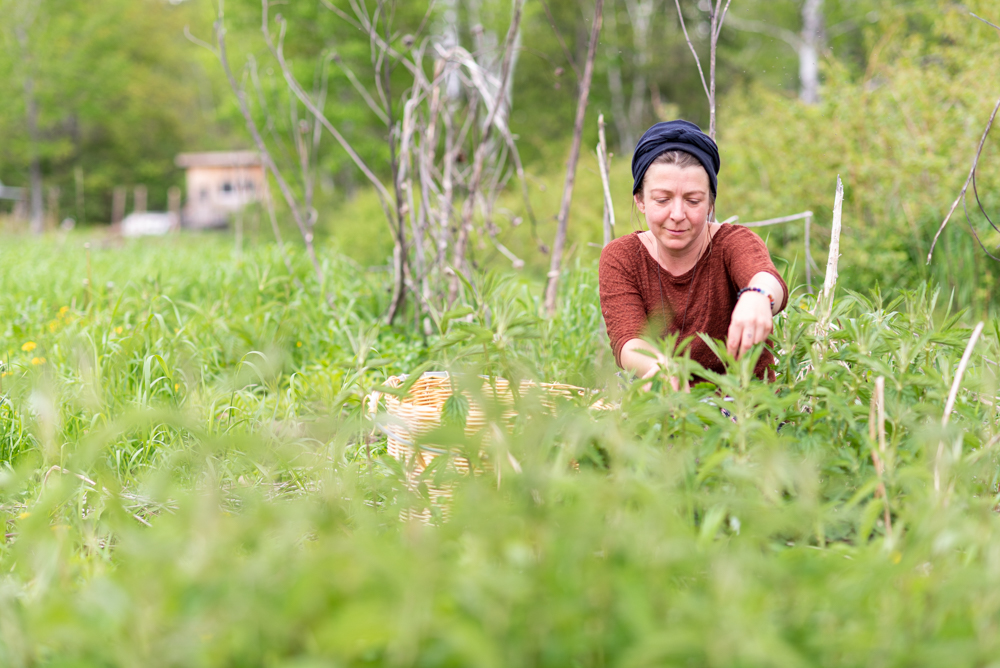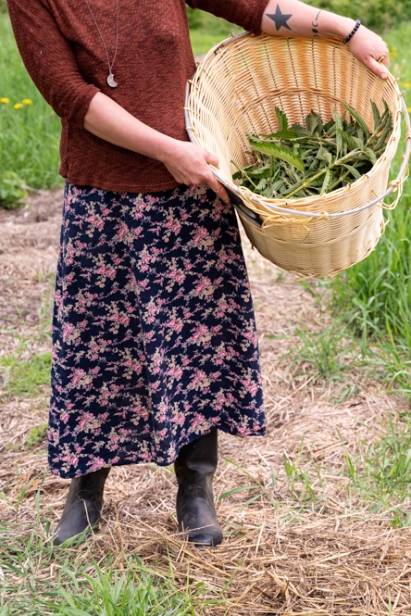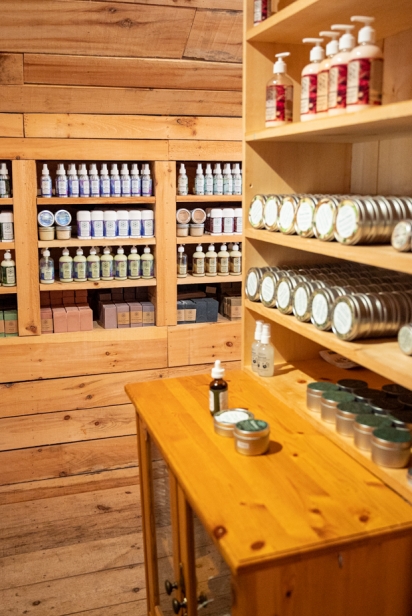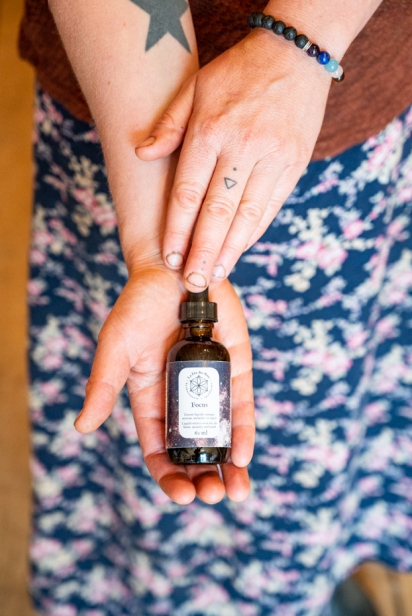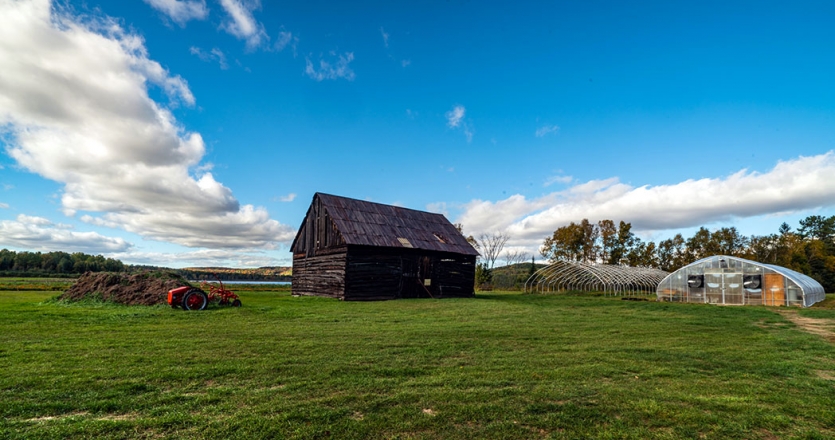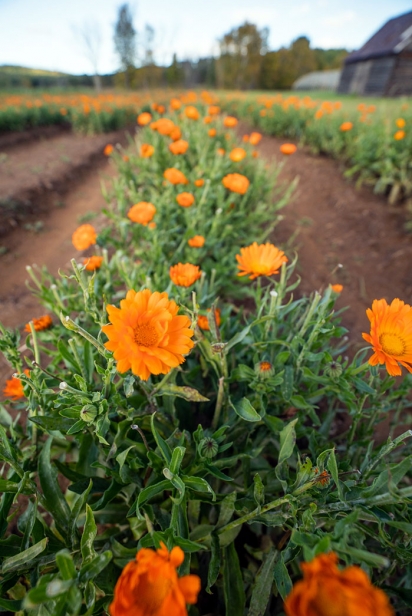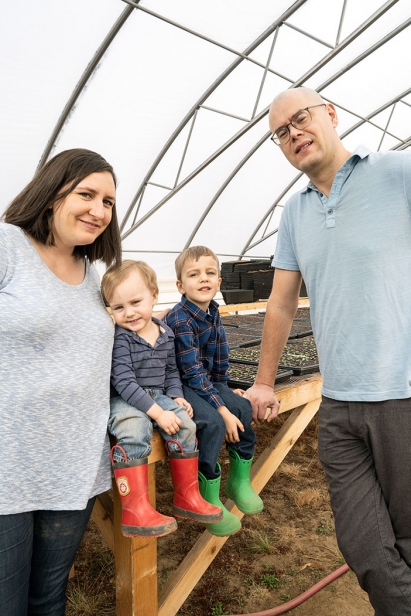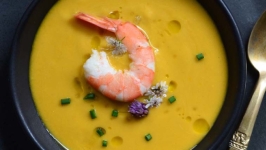The Herbal Apothecary
If you’ve ever tried camomile tea to calm you down before bed, lavender oil to help heal a blister from a new shoe or arnica for bruising or shock, you’ve dabbled in herbal medicine. While these simple solutions to age-old problems might not seem like medicine, they’re a natural approach derived from plants, which have been used for millenniums. And increasingly, we are turning to herbal solutions to support our health care, alongside conventional allopathic medicine.
It’s impossible to get a handle on quite where the global market for herbal medicines stands in 2019, largely because the edges of this category are so blurred. Does herbal medicine include homeopathy, ayurveda, aromatherapy and traditional Chinese medicine, to name but a few? Each offers a wide-ranging choice of pills, tinctures, oils, hydrolats, powders, teas, creams, ointments and infusions. However you choose to categorize it, practitioners involved in health care that falls outside the boundaries of pharmaceutical-driven allopathic medicine have seen an enormous growth in interest in herbal medicine. Demand for plant-based therapies is expected to reach US$129 billion globally by 2023. In 2017, global annual spending on herbal therapies sat at more than US$50 billion, according to a 2018 report by Market Research Future.
For Mariane Desjardins Roy, the founder and owner of La Fée des Bois Apothecary based about 90 minutes from Ottawa in Clarendon, Que., global market growth comes as no surprise. “People are turning away from medication,” she says. “Certain segments of the population are becoming more and more educated about the benefits of plant tinctures and the ability of plants to prevent disease and to heal.”
According to World Health Organization estimates, almost 80 per cent of the population of many Asian and African countries depend on traditional medicine for primary health care. But in the West, drivers are less about culture, tradition and economics and more about increasing consumer awareness, few or no side effects, supplier innovations and the consumer confidence that comes with the first steps towards oversight of an industry that’s been somewhat akin to the Wild West until recently, with a noticeable lack of standards across herbal products.
High standards are very important at St. Francis Herb Farm, a business based near Combermere, Ont., and one of the leaders in the Canadian natural health products industry. The company, founded in 1988, has grown consistently and now employs more than 50 people. While St. Francis’s growth might tell a story about the development of the industry as a whole, a focus on the highest standards drives this family-owned company for- ward. Approximately 80 per cent of St. Francis' products have natural product numbers (numbers issued by Health Canada to indicate that products have met quality standards) and all are produced in a facility that has a “good manufacturing practice” seal of compliance. “There’s such a wide choice of natural health products,” says Paul Rivett-Carnac, president and CEO of the business, which was founded by his parents, “but there are brands being developed that lack quality and integrity. In the way that consumers are increasingly asking where their food comes from, they should be doing the same with their natural-health products. The core of who we are at St. Francis as herbalists is our desire to bring out the best from quality herbs and to safeguard that quality.”
Herboristerie La Fée des Bois
Mariane Desjardins Roy’s first herbal product was Inflammata, a lotion she developed while still studying. It was designed to help with muscle pain, arthritis and the sensation of heavy legs, related to poor circulation. Her most sought-after product is Focus, a tincture developed to offer adrenal gland and stress support, to help calm nerves and clear brain fog. Now, her small business, based on 70 acres of land, produces more than 100 tinctures, teas, hydrolats, dried mushrooms, ointments and creams.
Desjardins Roy went to Montreal to study herbalism when she was 26. During three years at school, she fell in love with the whole process — from growing to product development and processing — and was soon looking for land to start a business. For two years, she rented a couple of acres near L’Ange Gardien before buying her farm to the northwest of Ottawa eight years ago. She now cultivates six acres and uses the remaining land for foraging wild plants. Needless to say, the whole operation is organic and uses no chemicals. “When we bought the farm, it was abandoned, so it was a huge challenge, but also a blank slate,” she explains.
Desjardins Roy develops all of her products, many driven by clients looking for remedies to help with specific problems. She works with more than 100 different plants, of which she and her partner, Joshua Wayner, grow about 60 and the remainder are wild harvested from the land surrounding her farm. Chaga mushrooms, packed with antioxidants and purported to help boost immunity, grow widely across Quebec, as does Reishi. “There are three types of Reishi,” explains Desjardins Roy. “One type grows in the wild in Quebec, another grows all across Canada, while the third comes from China. But they have heavy metal problems in the ground and the air and I advise people not to use mushrooms from China.”
Ginseng, a potent plant, commonplace in traditional Chinese medicine and usually used as an immune-system booster, comes from a local farmer who has been growing it for 20 years. It’s a tricky thing to grow successfully and cannot be harvested for seven years after planting. Desjardins Roy is waiting for hers to mature. She has also successfully cultivated exotic plants from India, such as holy basil and bacopa, as well as goldenseal, another notoriously difficult plant to keep happy.
The purity of her products is extremely important to Desjardins Roy. “We only work with fresh plants that we grow and wild harvest, except for a very few exceptions such as ginseng and patchouli, which we [try to] source locally and with great care if we cannot find them locally.” She processes all her products on site. “We harvest, and in a matter of a few hours, it’s all being processed,” Desjardins Roy explains. “For this reason we don’t want to become too large, because trust and traceability are very important to us.”
Education is a big part of Desjardins Roy’s job. She has stands at the Ottawa Farmers’ Market and the Wakefield Market, where she spends a great deal of time explaining the benefits of plant- based medicine. She also offers workshops and her products are available at more than 10 stores in the Ottawa-Gatineau region.
Herboristerie La Fée des Bois
34 Chemin Greermount, Clarendon, Québec
herboristerielafeedesbois.com| 819.307.2093
St. Francis Herb Farm
Paul Rivett-Carnac can’t quite recall the first product that St. Francis Herb Farm produced more than 30 years ago in his parents’ kitchen. He was just a child at the time. But he knows that the No. 1 product produced by the company now and sold across the country is its Deep Immune tincture, an astralagus- based formula that is used to treat colds and upper respiratory infections, to strengthen and regulate the immune system and to increase the production of white blood cells. It's also an antibacterial, antiviral tonic, liver protectant, anti-inflammatory and antioxidant. “It supports balance,” he says, something so critically lacking in so many of our lives today.
Rivett-Carnac took over the company from his parents, the founders, in 2014. Paul, his wife Caitlin and their three sons, aged four, two and seven months, live on their 50-acre farm near Barry’s Bay, where they have spent two years rebuilding the soil and are now cultivating two acres, to produce some of the plants used in the St. Francis products. “We are coming back to our roots as the original vision for our business was seed to shelf,” Rivett-Carnac says.
However, for many years the company did not grow its own herbs, instead developing long-term relationships with local farmers, some of whom have supplied the company with plants such as echinacea, goldenseal, lemon balm, passionflower and oats for more than 20 years. “These relationships are really a big part of our 30-year history,” Paul says. “They help us build our quality story. And we have a deep understanding of what it takes to safeguard that quality.”
Organic is a given. All but a very few products (those where the ingredients are impossible to source otherwise) are certified organic, produced either by the Rivett-Carnacs on their farm, by local farmers or foraged in the wild. “Not all the herbs and ingredients we use cultivate well — for example mushrooms and myrrh,” Rivett-Carnac explains. However, all of his ingredients are fresh. “The herb comes in, we grind it right away into a wet mulch, mix it with distilled water and alcohol and let it sit for two to four weeks to macerate. We agitate it daily and then we press it out and separate out the biomass,” explains Paul. “Finally, we filter the liquid for the purity of the essence.” But the process is herb-specific. “Some herbs, such as milk thistle, respond better to percolation. And this is part of our commitment to getting the very best from each plant, so we choose the process that best fits the herb as it may be different for flowers, seeds, roots, bark, leaves.”
St. Francis sells more than 150 products across multiple categories, including tinctures, capsules, creams, salts, syrups, dietary supplements, oils, gels and food products. It runs its own research and development lab, but also collaborates with academic institutions such as the University of Ottawa Biopharmaceuticals program for analyses and testing of its products. Paul’s parents, company founders Jeremy and Monique Rivett- Carnac, remain involved with product development and quality control.
The company works with naturopathic doctors across Canada and more than 1,200 of them dispense its products, which are also widely available in retail stores. Given this scope, there’s no doubt in Rivett-Carnac’s mind that awareness of the benefits of herbal medicine is growing and therefore so is the market.
St. Francis Herb Farm
2704 Dafoe Rd., Combermere, Ont.
stfrancisherbfarm.com | 613.756.6279 | @stfrancisherbfarm


